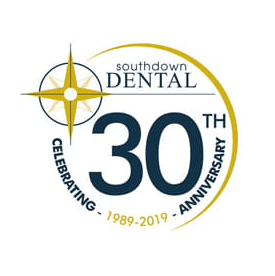
New Patients (289) 724-3005
Existing Patients (905) 822-4198
1375 Southdown Road Suite 8
Mississauga, ON L5J 2Z1
Same Day Appointment Available
What should my oral hygiene regimen be?

Achieving and maintaining a beautiful smile takes a lot more than brushing.
Your oral hygiene regimen may vary depending on your diet, lifestyle, and preferences. But there are staples you can’t go without. This includes flossing and professional dental cleanings.
Now you may be asking if you’re doing dental care right or if there’s anything you’re missing. Let’s talk about the best oral hygiene practices to help boost yours.
- Brushing
Brushing remains the leading component of an oral hygiene regimen. But how you brush is more important than how often you do it.
Brushing too frequently may harm the enamel, especially after eating or drinking anything acidic. The enamel softens after exposure to acids, and brushing right away can damage it.
Using a hard-bristled brush and aggressive brushing also doesn’t guarantee a better clean. The excessive abrasion can cause the enamel to wear and thin.
Make it a habit, as well, to brush before going to bed at night. The mouth produces less saliva during sleep, leaving it more prone to acid attacks.
Talk to your dentist for recommendations if dexterity or other health issues make manual brushing hard for you.
- Flossing
Flossing gets rid of deposits in areas the toothbrush can’t reach. This includes areas above the gum line and tight spaces between teeth.
The risks of developing decay and cavities increase if debris collects in the mouth. Flossing doesn’t replace brushing. Instead, they complement each other for an effective oral hygiene routine.
Did you know that studies link gum disease to health problems such as heart disease and pregnancy-related concerns? Flossing helps keep healthy not only the mouth but the rest of the body as well.
While further research is still needed to confirm mouth and body connections, this only shows how necessary dental care is.
If you’re not used to the traditional floss thread, consult your dentist or dental hygienist about other floss types you can try.
- Tongue cleaning
The tongue is home to billions of bacteria, good and bad. It helps us recognize different tastes and flavors and makes eating more delightful.
But like the teeth and gums, the tongue can also attract deposits. It has crevices where debris can collect.
Too much debris on the tongue can interfere with your sense of taste and result in bad breath.
So, include tongue cleaning in your dental care routine. You may use a soft-bristled brush or a tongue cleaner. Scrape dirt from the back to the front and rinse your mouth thoroughly.
Not cleaning the tongue is a disservice to your daily brushing and flossing. Harmful bacteria can get transferred back to the teeth and gums.
- Rinsing with mouthwash
Rinsing with mouthwash helps dislodge debris on the mouth, including toothpaste bits that have been stuck.
Choose a mouthwash that not only keeps the breath fresh, but also helps reduce plaque buildup and strengthen the teeth and gums.
Refer to products with oral health benefits validated by dental authorities.
- Drinking plenty of water
Water stimulates saliva production, lowers acid levels in the mouth, and reduces bad breath.
It doesn’t stain the teeth or leave behind debris in the mouth. It helps dislodge deposits after eating and keeps your body hydrated without the guilt.
Drinking water often also helps if you have dry lips. Licking lips will only make them drier. Saliva has digestive enzymes that can cause the skin to wear out.
- Reducing intake of sugary and starchy food
Harmful bacteria feed on sugary and starchy food and produce acids that beat down the enamel.
Indulging in these food types once in a while is okay, but be sure to drink water or rinse your mouth with plain water afterward.
This will prevent debris from clinging onto tooth surfaces and the gum line.
- Adding fruits and vegetables to your diet
Fruits and vegetables provide nutrition the mouth and body need. They also serve as natural teeth strengtheners and mouth cleaners.
Fruits and vegetables with high water content help neutralize acid levels in the mouth.
Crunchy produce that needs heavy chewing also helps get rid of debris on teeth. Munching on them is also a good exercise for the jaw.
- Committing to regular dental visits
Even with a strict dental care routine, you'll still need to see your dentist and dental hygienist for oral exams and cleanings.
Removing stubborn deposits in the mouth requires using special dental instruments.
Routine dental visits also allow your dentist to spot potential issues in your mouth and address them before they get the chance to develop.
A healthy mouth will require fewer dental appointments. This can translate to lower dental costs, not only for yourself, but for your family too.
Boosting oral hygiene regimen with help from your dental team
A smile lets you connect with people without words. It can be one of your best assets. Take care of it with help from tips listed above.
Talk to your dentist or hygienist to learn more about proper dental care routine. If you're in Mississauga, Ontario, and are looking for a new dental team for you and your family, please get in touch with us today at Southdown Dental.
Call us at (289) 724-3005 or leave us a message and we’ll get back to you as soon as possible.
We're happy to help our neighbors keep healthy and beautiful smiles.

CONTACT INFO
New Patients: (289) 724-3005
Existing Patients: (905) 822-4198
Fax: (905) 822-8550
1375 Southdown Road Suite 8
Mississauga, ON L5J 2Z1
HOURS
Monday8:00am - 4:00pmTuesday8:00am - 8:00pmWednesday8:00am - 8:00pmThursday8:00am - 8:00pmFriday - Saturday8:00am - 2:00pm
Copyright 2025 Southdown Dental and Dental Growth Strategies | All Rights Reserved | Powered by H-Cube Marketing